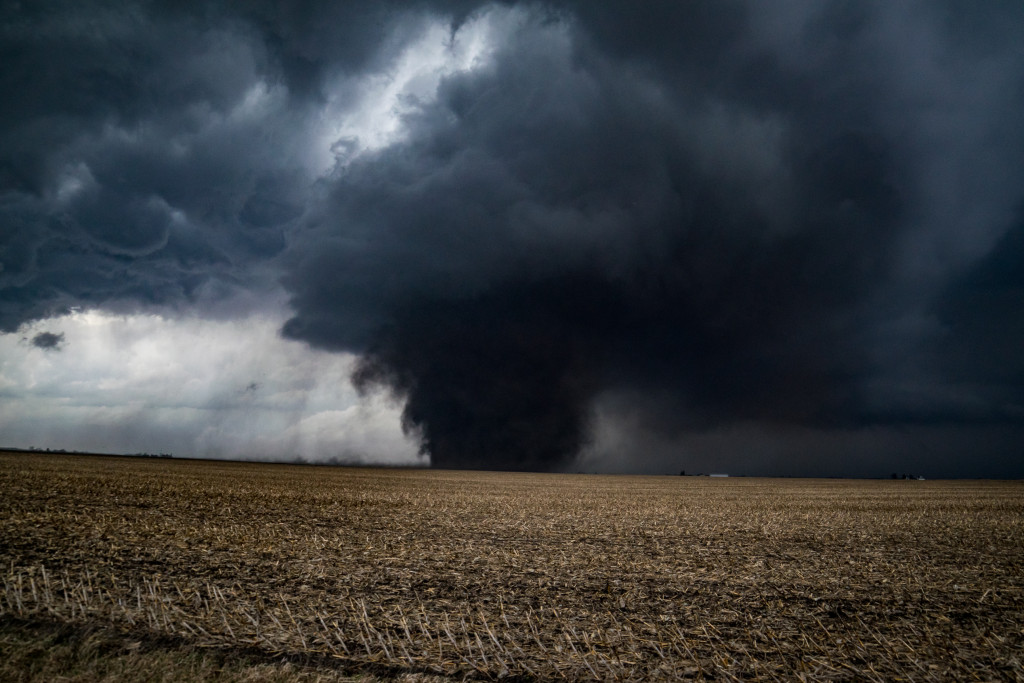- Identify vulnerabilities in your business establishment to prepare for extreme weather and mitigate associated risks.
- Reinforce your establishment, focusing on roofs, doors, windows, and internal infrastructure to minimize damage.
- Secure comprehensive business insurance to provide a financial safety net in extreme weather events.
- Regularly review and update your disaster preparedness plan to ensure its effectiveness and resilience.
Extreme weather conditions, such as hurricanes, floods, or severe heat waves, significantly threaten commercial establishments. These harsh conditions can cause structural damage, disrupt operations, and lead to substantial financial losses. Nearly 40% of small businesses never reopen their doors after a disaster. U.S. Small Business Administration data states that a small company’s average hurricane damage cost is around $283,000. This stark reality underscores the importance of preparing for and mitigating the risks associated with extreme weather events.
However, preparing the establishment for extreme weather conditions will require proper planning and execution. Here are a few tips to consider when keeping your business office safe from weather conditions:
Identifying Vulnerabilities

Identifying vulnerabilities within your commercial establishment forms the cornerstone of disaster preparedness. This process entails thoroughly assessing your property to uncover potential weaknesses susceptible to weather-induced damage. For instance, roofs, windows, and doors are often the first to succumb to the onslaught of extreme weather, leading to significant structural damage. Aging infrastructure can also amplify the risk, as old buildings may not withstand severe weather conditions. In flood-prone areas, a business might note its vulnerability based on location – a basement office, for example, is especially at risk.
Another example of identifying vulnerabilities is by examining potential hazards within the office. For instance, loosely stored equipment or furniture can be dangerous during a hurricane, as they could become projectiles in strong winds. Identifying and securing these hazards beforehand can significantly mitigate risks.
However, vulnerabilities will vary across different locations and types of businesses. It is essential to assess your specific situation and prioritize accordingly. Your site, building structure, and kind of business should all factor into your vulnerability assessment. By pinpointing these vulnerabilities early on, companies can implement measures to reinforce their defenses, therefore mitigating potential damage and minimizing downtime in the wake of a disaster.
Reinforcing the Establishment
To protect your business from weather damage, it’s essential to reinforce your establishment physically. This prevents structural damage and minimizes business interruption during a weather event. Here are some aspects to focus on:
Reinforcing Roofs
The roof is your business’s first line of defense against weather elements. Regular maintenance checks and repairs will ensure it remains robust and resilient. One might consider installing impact-resistant roofing materials that withstand high winds and heavy rains. Furthermore, clearing gutters and downspouts regularly prevents water backups and potential damage to your building. You can also hire a reputable seamless gutter company to install gutter guards to keep debris and leaves from clogging the system.
Strengthening Doors and Windows
Doors and windows can easily succumb to high winds, heavy rains, or hail. Reinforcing them with impact-resistant glass and sturdy frames can significantly enhance their durability. Installing hurricane shutters provides extra protection for businesses in hurricane-prone areas.
Ensuring Proper Drainage
Poor drainage can lead to flooding, severely damaging your property. Regular inspection and cleaning of drainage systems can prevent water accumulation. Moreover, consider working with reputable seamless gutter companies to ensure your gutters adequately channel water away from your building, effectively reducing the risk of flooding and water damage.
Securing Internal Infrastructure
Securing loose items inside your business premises is equally essential. Anchoring heavy furniture and equipment can prevent them from becoming hazardous projectiles in a storm. Also, ensure that important documents and electronic equipment are stored at a safe height to avoid damage from potential flooding.
Getting Business Insurance

Securing comprehensive business insurance is crucial to mitigating the impacts of extreme weather on your establishment. In the face of disaster, insurance can serve as a financial safety net, helping your business recover and resume operations faster. Policies should cover the physical damage to your premises and the potential interruption to your business operations.
Property insurance typically covers repairing or replacing damaged or destroyed physical assets, such as your building, equipment, and inventory. This insurance is critical, especially when facing extreme weather events, as it alleviates the burden of shouldering the enormous recovery costs alone.
On the other hand, business interruption insurance compensates for lost income and operating expenses during the period that your business cannot operate due to weather-induced damages. This insurance can help keep your business afloat, pay your employees, meet your lease or loan obligations, and maintain your market position after a disaster.
Remember that not all insurance policies cover all types of weather events. Standard procedures might exclude certain natural disasters, like floods and earthquakes, which require separate coverage. Therefore, it’s essential to thoroughly review your policy details or work with an insurance advisor to ensure that your coverage is comprehensive and fits your business’s specific needs and risks.
Final Thoughts
Extreme weather conditions pose significant threats to business establishments, and the impact can be devastating without proper preparation. Identifying vulnerabilities, reinforcing the establishment, and securing adequate insurance coverage is crucial to protecting your business office against adverse weather events. Additionally, it’s essential to regularly review and update your disaster preparedness plan to ensure its effectiveness. By taking proactive measures and investing in appropriate mitigation strategies, businesses can mitigate the risks and potential losses associated with extreme weather, ensuring business continuity and resilience.

